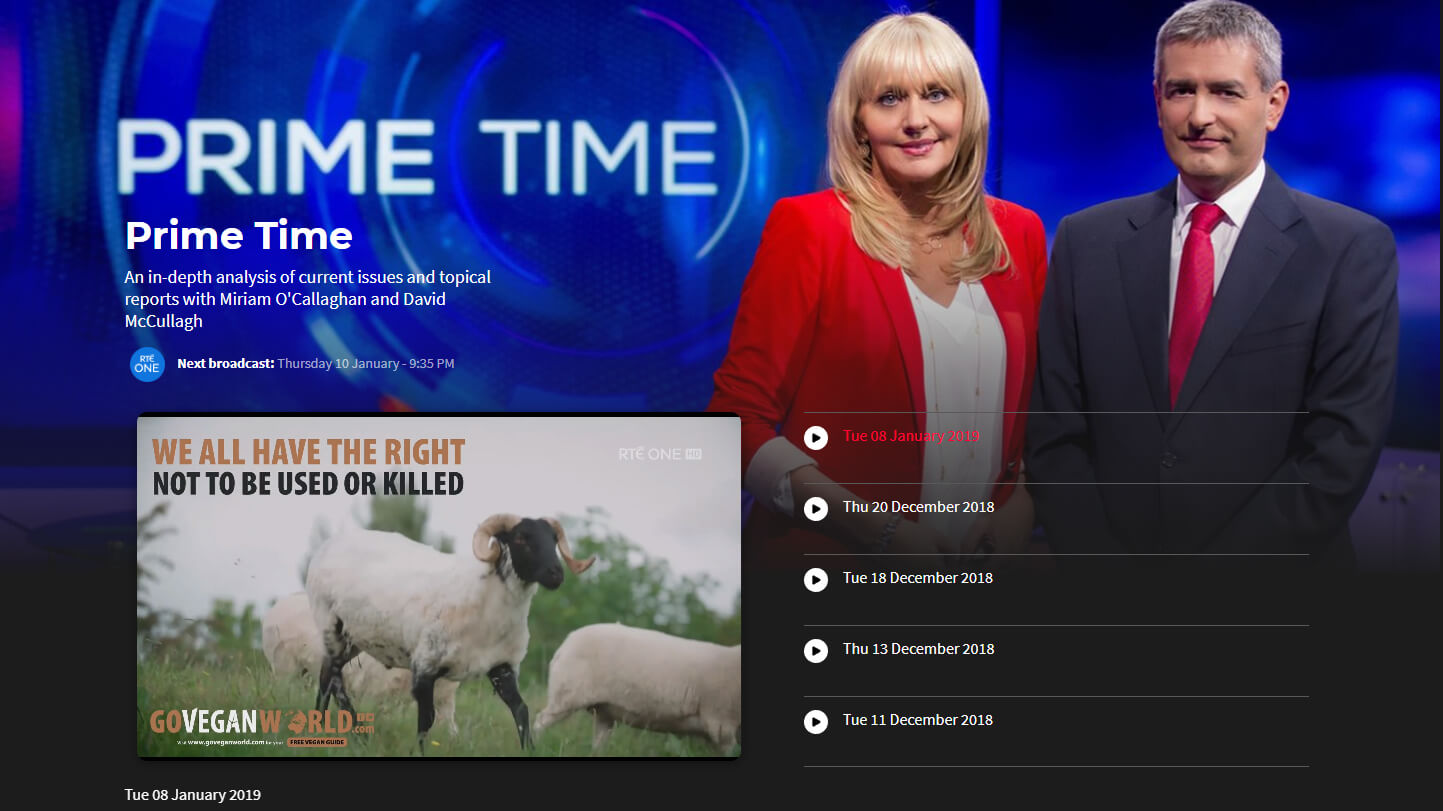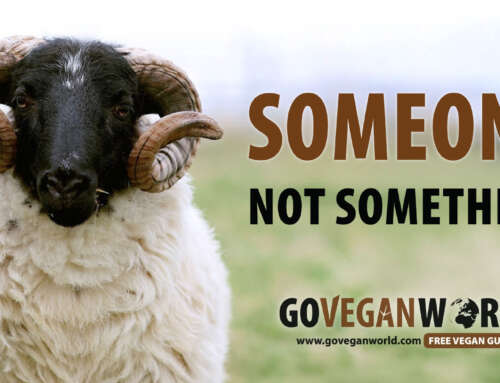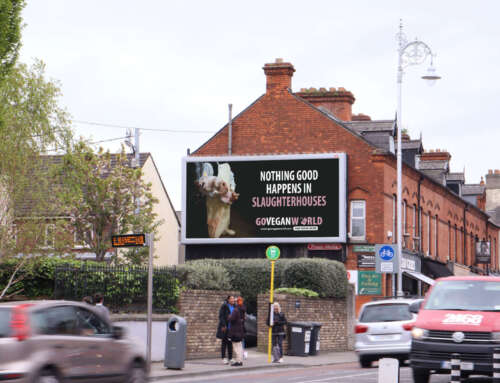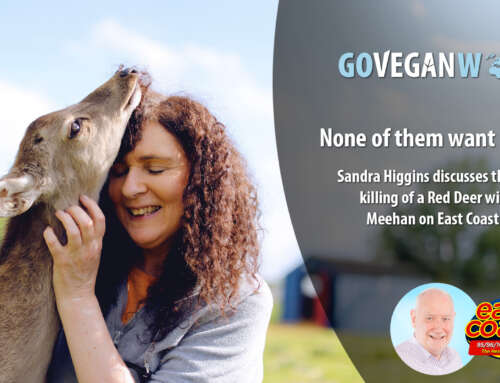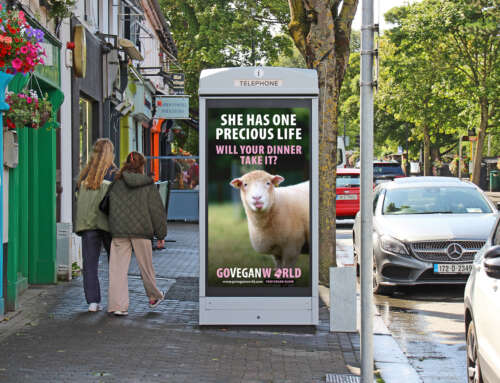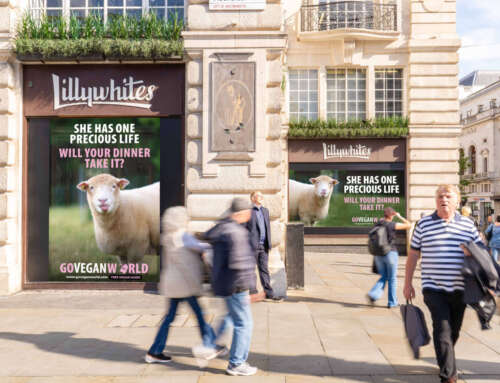Miriam O’Callaghan discusses Veganism on Prime Time
Vegans do not eat, wear, or use other animals in any way because they respect their right not to be owned or killed by humans for our ends.
While veganism is based on fact, the industries that profit from other animals function because of several myths. Predominant among them are the myths that:
- animal use is necessary for human survival
- other animals do not feel or value their lives as humans do
These myths serve to foster our discrimination against individuals based on the arbitrary difference of their species membership. In Ireland it is not regarded as acceptable to kill and eat cats and dogs, but it is normal and acceptable to kill and eat cows, pigs, sheep, chickens and other birds even though the animals we farm have no more wish to be harmed and killed than the ones we use as companions in our homes. Most Irish people recoil at the thought of killing horses for the purpose of eating them; yet they condone using and killing them for entertainment. Discrimination against someone because they are a member of a different species is called speciesism. It is akin to discrimination against someone on the basis of their gender, sexual orientation, age, skin colour, race or religion. It is irrational and unjust.
Myth 1: animal use is necessary for human survival
All the major world dietetics associations concur on the fact that a 100% plant diet is nutritionally adequate. In fact, a well planned, whole foods, plant diet has many benefits for human health.
We do not need to eat, wear, or use the lives or bodies of other animals.
Myth 2: other animals do not feel or value their lives as humans do
Consciousness and sentience in non-human animals has been studied for quite some time. These are challenging subjects to study; we still have much to learn about human functioning in these areas, never mind the limitations of one species studying others. In 2012 the Cambridge Declaration on Consciousness concluded that “non-human animals have the neuroanatomical, neurochemical, and neurophysiological substrates of conscious states along with the capacity to exhibit intentional behaviors. Consequently, the weight of evidence indicates that humans are not unique in possessing the neurological substrates that generate consciousness. Non-human animals, including all mammals and birds, and many other creatures, including octopuses, also possess these neurological substrates.”
It is a fact that other animals feel.
It is a fact that they are conscious of themselves and the world they live in.
It is a fact that they are unique individuals with histories, identities and personalities.
It is a fact that they are ‘someone’ even if they are still the legal property of humans. The law does not always equate with justice.
Therefore, vegans who respect the fundamental rights that emanate from sentience (not to be owned, used or killed) live according to evidence based fact. Vegans have both right and science on their side.
The industries that exploit and kill other animals attempt to justify the indefensible by falsely categorising other animals as objects whose purpose in life is to be exploited and killed. The undeniable fact of animal sentience, enshrined in the Treaty of Lisbon, is paid mere lipservice with reference to welfare guidelines. An accurate understanding of welfare shows that it has nothing to do with respect for the feelings of a conscious being: instead it pertains to the minimum legal prescription by which the individuals of other species can be mutilated, confined, exploited and killed. Animal agriculture is industrialised exploitation and killing. It can never be justified.
These points were discussed with Miriam O’Callaghan on Prime Time television in Ireland in a debate between Catriona Morrissey, Deputy News Editor of the Irish Farmers Journal and Sandra Higgins, founder and director of Go Vegan World. In the heated discussion that followed, Sandra Higgins refuted several myths and misconceptions put forward by Catriona Morrissey as she attempted to justify animal agriculture.
You can watch the programme here.

